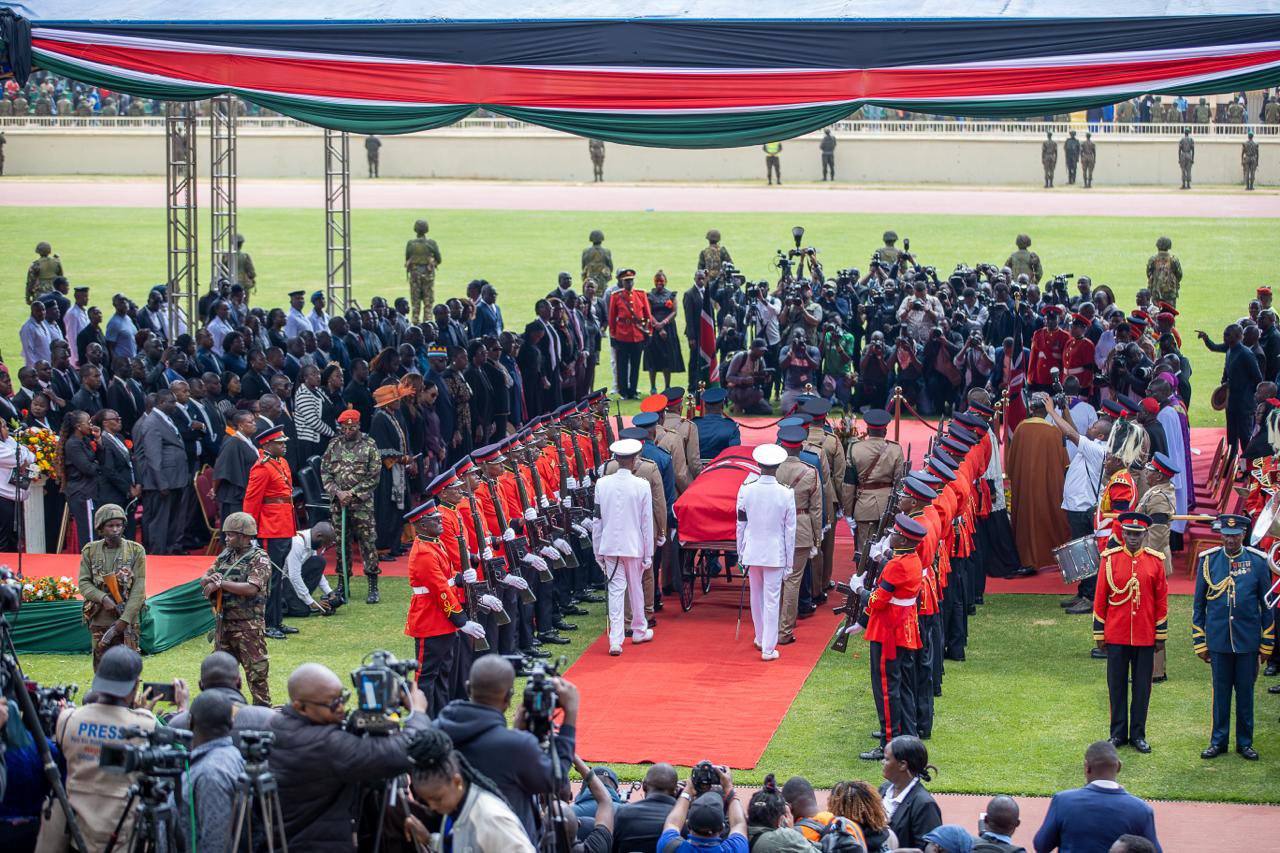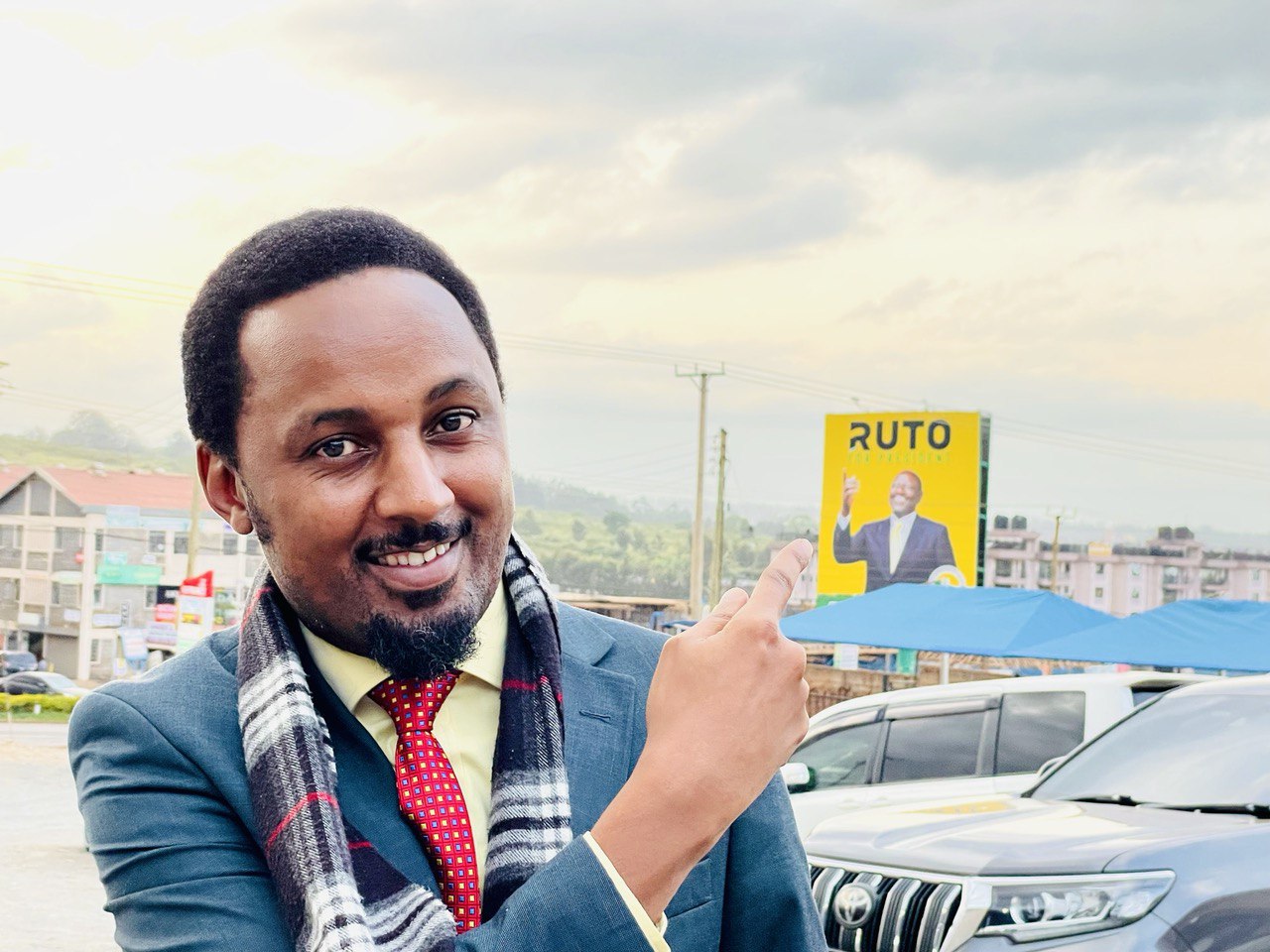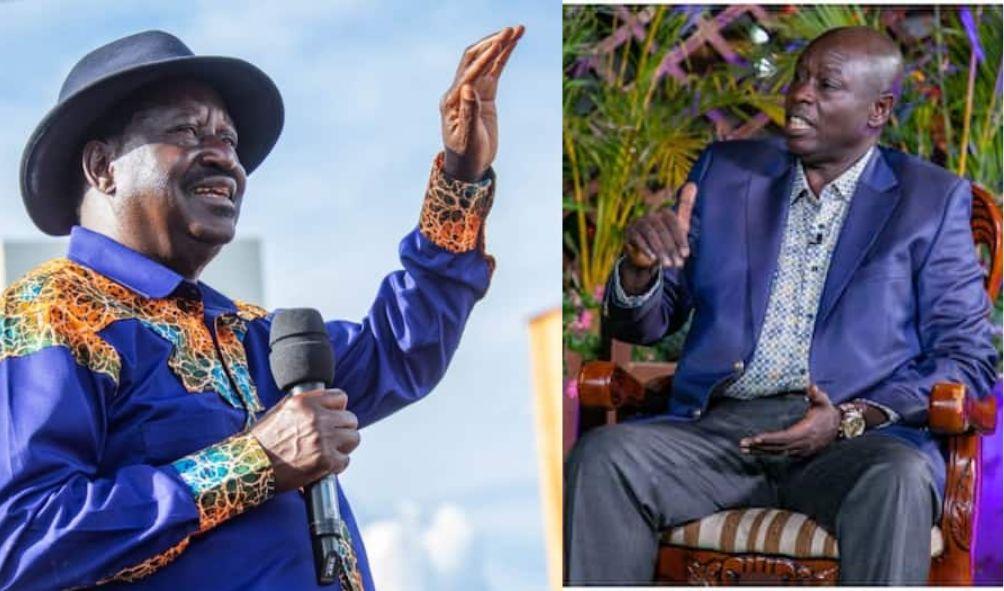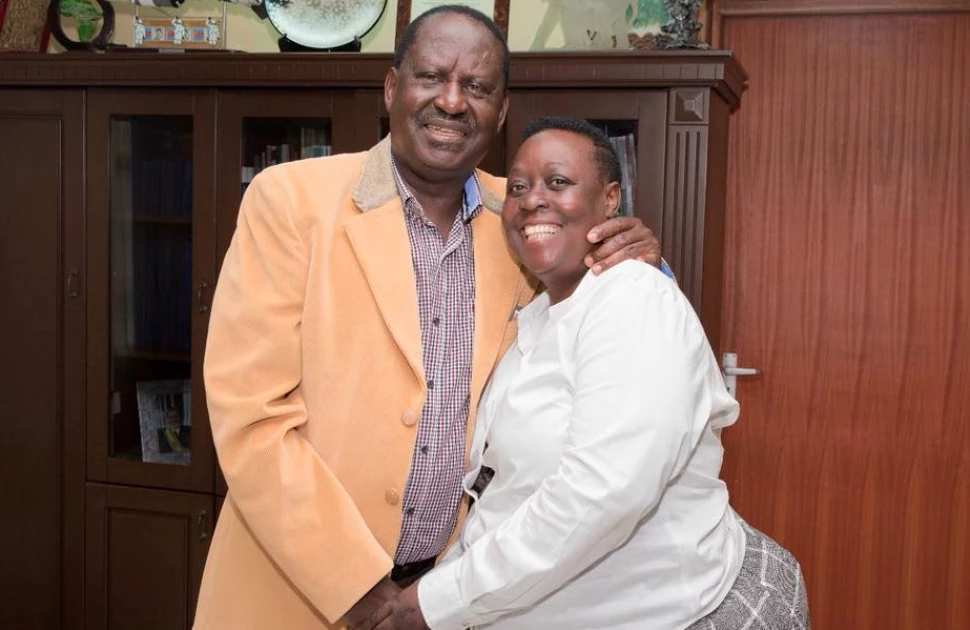Kiambu Senator Karungo wa Thangwa, a close ally of former Deputy President Rigathi Gachagua, has attempted to justify why his political mentor missed Raila Odinga’s public farewell held on Friday, October 17, at Nyayo Stadium.
The senator’s explanation has done little to convince Kenyans who flooded social media with questions about why Gachagua skipped such a historic event that brought together leaders across political divides.
While top political figures, including Kalonzo Musyoka, Fred Matiang’i, and Martha Karua, graced the event, Gachagua was notably missing. His absence at all previous funeral events for the late Raila Odinga—including the public viewings—only deepened public curiosity and criticism.
Karungo wa Thangwa claimed that Gachagua’s decision was intentional and grounded in “statesmanship,” not defiance or political disinterest. But his argument has raised more questions than it answered.

Gachagua Ally Defends His Absence at Raila’s State Farewell
According to Thangwa, Gachagua’s non-attendance was meant to preserve the sanctity of Raila Odinga’s farewell rather than divert public attention.
“Gachagua is not just another politician. He is one of the most consequential leaders of our time,” the senator stated. “It is precisely because of that stature that he chose not to attend the public farewell.”
He claimed that Gachagua’s presence could have “shifted the tone” of the ceremony from honouring Raila’s legacy to fueling unnecessary political debate.
Thangwa insisted that the former DP’s absence demonstrated “quiet leadership” that prioritizes national unity over personal appearances.
“The day was not about politics, alliances, or rivalries,” Thangwa said. “It was about Kenya coming together to honour a towering figure in our history.”
However, the senator’s comments were met with skepticism. Many Kenyans viewed the explanation as a weak attempt to justify Gachagua’s no-show at an event that symbolized unity and national healing.
Social media users questioned why the former DP could not put aside political differences to pay his respects, especially when even some of his fiercest rivals attended.
Gachagua’s Silence and Political Calculations
While Gachagua has remained silent on the issue, his political behavior in recent months has drawn attention. The former Deputy President has kept a low profile since stepping back from the public eye following political realignments in the Kenya Kwanza government.
Observers argue that his absence from the high-profile farewell could be strategic—either to avoid political misinterpretations or to distance himself from the national mood.
Thangwa claimed that Gachagua’s silence was an expression of wisdom and restraint rather than indifference.
“Leadership is not about how loudly one speaks,” the senator said. “It is measured by understanding the weight of the moment and acting with wisdom.”
He added that even in silence, Gachagua’s influence could still be felt. “He does not need to stand on every stage to be at the centre of the story. His leadership speaks for itself, and even in silence, the nation feels his presence.”
But critics dismissed these claims, arguing that attending Raila’s farewell would have shown humility and respect for Kenya’s long political struggle.

The Bigger Picture and What It Means for Gachagua
The controversy surrounding Gachagua’s absence has reignited debate about his political future and public image. Once a vocal and powerful figure in the Kenya Kwanza administration, his decision to stay away from national events is increasingly being viewed as political isolation.
Analysts believe his absence may harm his credibility among Kenyans who value unity during moments of national mourning. Some also see it as a missed opportunity for Gachagua to soften his often combative image and bridge political divides.
Karungo wa Thangwa’s defense, though loyal, has done little to silence critics who accuse the former DP of being tone-deaf to the national mood.
For many Kenyans, the Raila Odinga farewell was not just a political event—it was a moment of collective reflection on the country’s democratic journey. Gachagua’s absence, therefore, stood out not merely as a personal decision but as a political statement, deliberate or not.
As the nation continues to honour Raila’s memory, questions remain about Gachagua’s next move. Whether his silence will be seen as wisdom or weakness will depend on how he re-engages with the public in the days ahead.


